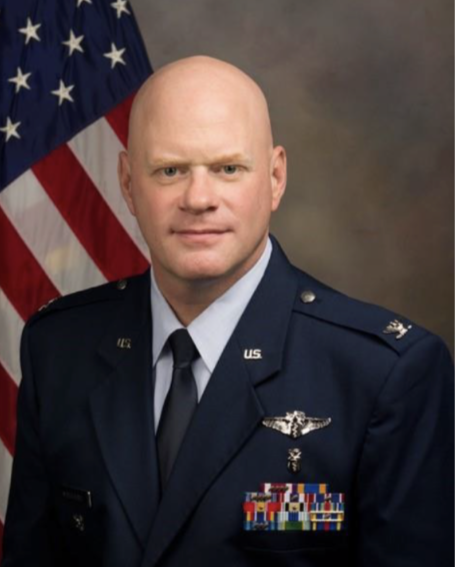Surgeon General of U.S. Space Force Set to Discuss the Future of Medicine in Space with Baylor Students

Col. Walter M. 'Sparky'?' Matthews, a 1992 Baylor University graduate and Surgeon General of the United States Space Force (photo courtesy of Col. Matthews)
Media Contact: Baylor University Media and Public Relations, 254-710-1961
Follow us on Twitter: @BaylorUMedia
by Cacey Vigil, student newswriter, Baylor University Media and Public Relations
“The discipline of medicine is about to take a giant leap forward into space. The technologies and doctrine required for treating patients in space – both medically and surgically – are not yet fully known, much less developed,” Matthews said. “The generation of medical professionals who will treat the first patients outside earth’s atmosphere are in college now.”
Matthews serves as the senior Department of Defense medical officer for the USSF, a military service branch tasked to organize, train and equip space forces in order to protect U.S. and allied interests in space and to provide space capabilities to the joint force. Matthews is an aerospace medicine specialist, is board certified in aerospace medicine and public health and general preventive medicine, a command surgeon for the United States Space Command and is rated as a chief flight surgeon. He manages all USSF medical readiness planning, training and execution and advises senior leadership on relevant medical matters.
Matthews’ lecture will give a brief, high-level overview of the USSF as well as discuss the future of the practice of medicine in space and how patients will be treated. He also will discuss the research areas needed to support space medicine and how Baylor University can take part in such research.
Students attending will learn more about the USSF, hear about the strategic lines of effort for the practice of medicine in space and be inspired to be a part of this new frontier during their time at Baylor.
“With health being a key academic initiative in Baylor’s Illuminate strategic plan, Matthews’ lecture will inform the large pre-health cohort of students here at Baylor of the next frontier in medicine in response to the expected increase in future space travel,” Lee Nordt, Ph.D., professor and dean of the College of Arts & Sciences, said.
Providing undergraduates with transformational educational experiences is part of one of the pillars of Illuminate, which aspires to transform lives around the world through ground-breaking research that addresses critical issues and creates a foundation for future discoveries.
“Baylor has the ability to be a groundbreaking leader in the basic sciences research to support medicine in space,” Matthews said.
This lecture is sponsored by Baylor’s College of Arts & Sciences.
ABOUT BAYLOR UNIVERSITY
Baylor University is a private Christian University and a nationally ranked research institution. The University provides a vibrant campus community for more than 18,000 students by blending interdisciplinary research with an international reputation for educational excellence and a faculty commitment to teaching and scholarship. Chartered in 1845 by the Republic of Texas through the efforts of Baptist pioneers, Baylor is the oldest continually operating University in Texas. Located in Waco, Baylor welcomes students from all 50 states and more than 90 countries to study a broad range of degrees among its 12 nationally recognized academic divisions.
ABOUT THE COLLEGE OF ARTS & SCIENCES AT BAYLOR UNIVERSITY
The College of Arts & Sciences is Baylor University’s oldest and largest academic division, consisting of 25 academic departments and seven academic centers and institutes. The more than 5,000 courses taught in the College span topics from art and theatre to religion, philosophy, sociology and the natural sciences. Faculty conduct research around the world, and research on the undergraduate and graduate level is prevalent throughout all disciplines. Visit www.baylor.edu/artsandsciences.